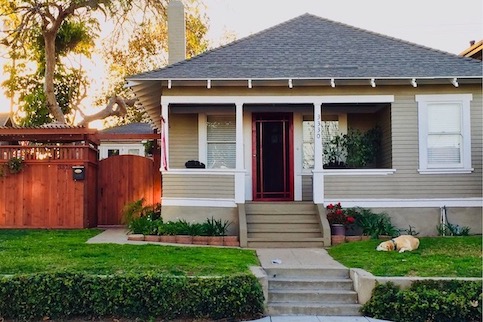When you apply for a mortgage, you might feel a bit like you’re being put under a microscope. Even those who are in good financial standing may find the inevitable scrutiny from their mortgage lender a little unsettling.
There’s a silver lining worth understanding, though: This process benefits you, too. Your mortgage lender wants to be sure you aren’t at risk of defaulting on a loan, which would be bad for everyone involved because not only would the lender likely lose money, but you may lose your home.
To avoid this scenario, mortgage applicants are asked to provide an array of paperwork proving they have the money and the financial history to buy a home. This paperwork includes pay stubs, tax returns, any gift letters and – you guessed it – bank statements.
Let’s take a close-up look at the role and importance of bank statements for mortgage loan approval to buy a house.
What Is A Bank Statement?
A bank statement is a document that shows your financial transactions and banking activity. It can guide you, the account holder, in tracking your finances, finding mistakes, watching for suspicious activity and learning your spending habits. You’ll typically receive a bank statement monthly or quarterly.
Find A Mortgage Today and Lock In Your Rate!
Get matched with a lender that will work for your financial situation.
See What You Qualify For
Buy A Home
Discover mortgage options that fit your unique financial needs.

Refinance
Refinance your mortgage to have more money for what matters.
Tap Into Equity
Use your home’s equity and unlock cash to achieve your goals.
Why Do Mortgage Lenders Need Bank Statements?
Mortgage lenders require you to provide them with recent statements from your account with readily available funds, such as a checking or savings account.
In fact, they’ll likely ask for documentation of any accounts that hold monetary assets. This is because mortgage lenders want to know that you’ll be able to afford your down payment – if one is required – and make your monthly mortgage payments. So, your lender will look at your assets and see how much cash you have at your disposal if you need it.
Each lender and the investors who buy mortgages from them on the secondary market will have their own requirements on how many months’ worth of mortgage payments they expect borrowers to have saved up (not including the amount that may be designated for a down payment). Keep this in mind when you’re preparing to start the home buying process.
How Many Months Of Bank Statements For A Mortgage Do I Need?
Typically, you’ll need to provide 2 months’ worth of your most recent bank statements associated with any account you plan to use for loan approval purposes. If the account doesn’t send monthly reports, you’ll use the most recent quarterly statement.
Lenders want to be sure the money in the account belongs to you and that you haven’t taken out a loan or borrowed money from someone in order to qualify for the mortgage. If the money has been in the account for a couple of months, the lender assumes it belongs to you since any loans you took out beyond the 2-month window will already be on your credit report. If any large, unexplained deposits appear on the bank statements you provide, you’ll need to prove they came from an acceptable source.
It’s all about ensuring you aren’t perceived as too risky for the lender to grant you mortgage approval. If potential borrowers are trying to make it look like they’re better qualified to handle a mortgage than reality suggests, lenders want to know about it.
Although 2 months’ worth of statements is a fairly standard guideline, you may be asked to provide 6 – 12 months’ worth of statements if you have a higher debt-to-income ratio (DTI) and you’re taking cash for a jumbo loan or a property with more than one unit. Additional statements may also be required if the property is a second home or investment property.
What Do Mortgage Lenders Look For On Bank Statements?
When you apply for a mortgage, lenders look at your bank statements to verify where the money in your accounts comes from and that you can be trusted with a certain loan amount. Lenders need to ensure that borrowers have enough money to meet new loan obligations.
When a lender reviews a bank statement, they typically hope to find:
- Regular income
- Consistent monthly payments
- Expense history
- Cash reserves and money in your account
- No bounced checks or overdrafts
- No large deposits, withdrawals from undisclosed debt or gifts without a documented source
How Do Lenders Verify Bank Statements?
Each lender has its own processes for accessing necessary documents and verifying a borrower’s income and assets. Some lenders still work with physical, paper documents, while others allow you to manage these documents electronically. Once you provide your bank statements, the lender may follow up with your bank to verify the statements’ validity.
See What You Qualify For
You can get a real, customizable mortgage solution based on your unique financial situation.
What To Keep In Mind For Mortgage Bank Statements
The document collection part of the mortgage loan process can potentially make you feel a little uncertain if you don’t know what to expect. Here are a few more tidbits of information you should consider as you’re gathering documents for your lender.
- If you have a family member who wants to help you pay for your new home, the person giving you this gift may have to provide documentation of the transfer of funds. This is usually done with a bank statement or a withdrawal and deposit slips. A gift letter will also confirm that the gift doesn’t need to be repaid.
- If you apply for a home loan and take out another loan in the meantime, the mortgage lender will have to take that new loan into account and recalculate how much you qualify for. It’s better to avoid getting new loans or credit cards while you’re in the mortgage approval process and your finances are under review.
- When applying for a mortgage, it can be beneficial to have all the documents you need ready to go. This will help ensure the process goes as quickly and smoothly as possible.
- Your lender may run a check on your bank account more than once. For this reason, it’s important that you don’t make any drastic changes to your finances at any point during the loan approval process or just after being approved for a loan.
The Bottom Line
Knowing exactly where your finances stand when applying for a mortgage is essential to the buying process. You’ll have a higher probability of getting a home loan if your credit score is good and your lender has determined you can be trusted with your money.

Kevin Graham
Kevin Graham is a Senior Writer for Rocket Companies. He specializes in economics, mortgage qualification and personal finance topics. As someone with cerebral palsy spastic quadriplegia that requires the use of a wheelchair, he also takes on articles around modifying your home for physical challenges and smart home tech. Kevin has a bachelor's degree in journalism from Oakland University.












